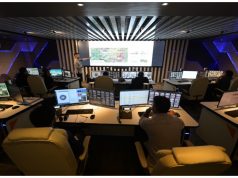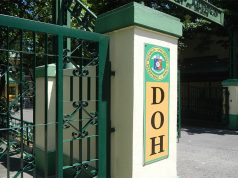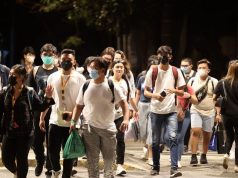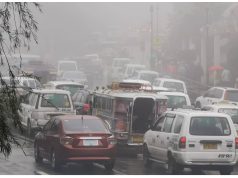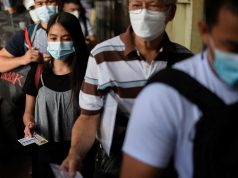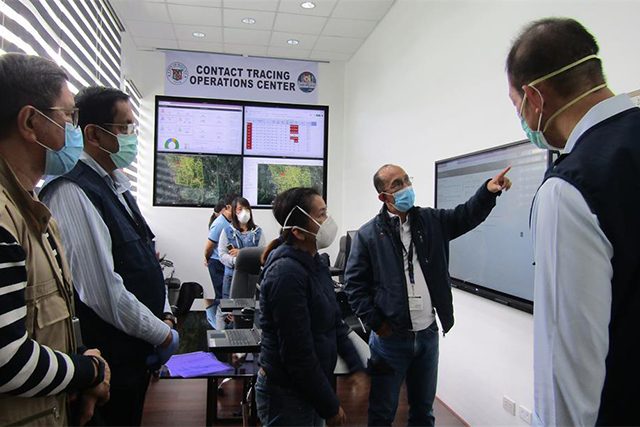
After being in lockdown for almost a year, the country does not have a unified contact tracing system yet despite the administration assigning a contact tracing czar as part of its COVID-19 response.
This was discovered during a joint hearing on the House of Representatives on Tuesday, led by the members of the House Committees on Health and Information and Communications Technology.
Based on House Resolution No. 1536, local government units (LGU) had a hard time initiating contact tracing in their areas since the COVID-19 database lacks fundamental data such as phone numbers and full addresses of individuals.
“As a result, numerous third parties offered disparate free contact tracing solutions, usually through mobile apps that require people to own smartphones while some establishments continued to offer manual registration to non-smart phone users,” the resolution reads.
It also noted that while the national government has endorsed the StaySafe.ph platform as the official monitoring app for government offices and LGUs, some sectors still use other platforms like SafePass.
The SafePass is a COVID-19 prevention and incident management platform for all businesses. It was also adopted by the Inter-Agency Task Force for the Management of Emerging Infectious Diseases last year.
“Disparate apps and non-centralized data repository [lead] to redundant products, cost duplication and less effective solutions often due to limited data access,” the resolution added.
It added that poor interconnection and data sharing between solution providers and the health department’s central database was also observed
The resolution also cited data saying that the country only identifies at least 7 contacts per individual instead of the ideal ratio which is 1:37 for urban areas and 1:30 for rural areas.
Baguio City Mayor Benjamin Magalong, who is the appointed contact tracing czar tasked to oversee such systems, said that he was not consulted by the developers of various contact tracing applications.
He added that while it was okay for LGUs to use other contact tracing apps, it should still be integrated into the StaySafe.ph that was previously endorsed by the government.
“What we envision is a single contact tracing app, but these companies are trying to outdo each other,” Magalong was quoted as saying.
Dr. Eric Tayag, director of the health department’s knowledge management and information technology service, said that there is still no certification that StaySafe.ph is technically feasible and secure.
This was supposed to come from the Department of Information and Communications Technology.
The revelation left some Filipinos shaking their heads as they express their concerns on social media.
“Dumaan na ang TikTok videos, ube pandesal at dalgona coffee. Wala pa din nangyayari at usad ang COVID-19 response natin. Eto na pala ang excellent’ niyo. Galeng,” a Twitter user said in response to the reports.
“After 1 year of lockdown, Duterte’s government just realized this. Their contact tracing czar did nothing,” another online user commented.
“Grabe. Anong ginawa niyo sa loob ng isang taon?” a different Filipino likewise asked.
“Ngayon niyo lang nalaman? Mga hudas kayo. Isang taon na nakalipas, wala kayong ibang ginawa kundi magpakasasa sa yaman habang kami, ‘di na namin alam kung may naghihintay pa bang magandang bukas para sa amin,” another Twitter user remarked.
Last year, President Rodrigo Duterte assigned Magalong to be the country’s contact tracing czar after he was recognized for his city’s initiatives on the matter.
Contact tracing is defined by the World Health Organization as “the process of identifying, assessing, and managing people who have been exposed to a disease to prevent onward transmission.”
“Contact tracing is used to identify and provide supported quarantine to individuals who have been in contact with people who are infected with SARS-CoV-2 and can be used to find a source of infection by identifying settings or events where infection may have occurred, allowing for targeted public health and social measures,” it said on its interim guidance.
WHO noted that the initiative is an “essential public health tool for controlling infectious disease outbreaks.”
It added that when it is systematically applied in healthcare systems, along with the efforts of the government, it can “break the chains of transmission of an infectious disease.”
Last year, it expressed alarm over the Philippines’ “slow” contact tracing efforts and said that the government should “double down on its efforts.”




